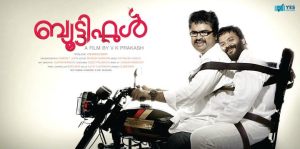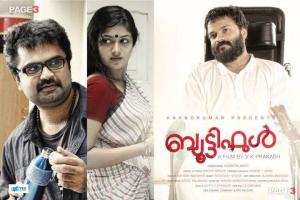Save us from the peril of watching movies…
Let me share something on the ways the films of my land are going. Dubbed after the Hollywood they call it the “Mollywood”(M for Malayalam), but believe me its not that great a wood, something like a bush. Malayalam film scenario was typically marked by the dearth of classic movies. There used to be a time when people used to dwell on very ordinary situations of life, but as a rule they religiously observed certain developmental aspects of the story. This gave rise to stereotypes in Malayalam films. Entertainers usually centered around the “megastars” (the normal ascension is something like star-supersta-superduperstar-….megastar).The adjectives are made by the most erudite members of the fans’ association sticking to each megastar. The fans’ association is not generally an intellectually oriented lot who takes art or literature seriously. They are available for the star to show his clout and to indulge in campaigns and exercises detrimental to any opposing faction. These megastars are not very many, to be exact just two. They won’t leave and the female actors once cast opposite to them decades before are either dead or happy with the roles of granny, but enriched by the rich elixir of youth, our protagonists still dance,ogle and shoot dialogues like a loose cannon. Characters are tailormade for them assuring that they will be almighty and their deviant behaviour should be treated as pedagogical and consequently as holy evils. These characters are preferably high class people flaunting an elitist accent and impossibly rich gadgets and tastes.
Surprisingly, these days certain iconoclasm is going on in Malayalam movies. People really love that change. There is irreverence for whatever was considered sacrosanct and we have started to shed the reservations. As a rule people advise each other that a megastarrer movie should not be watched unless there are a thousand feedbacks vouching for its worth. The indiscriminate fans are happy as long as the star is alive on stage and they can hardly give you any sound piece of advice.
The movie “Beautiful” I watched last year got me struck to two instances in the story line, though there are many of them. The protagonist is a quadriplegic nevertheless heir to a large fortune also shown as indulging in ogling and ribaldry. Once returning from the hospital in the night they miss a burglar fleeing from his home. The burglar was very adept in martial skills and high jumping and all sorts of acrobatic gestures. The face of our man was alight with admiration instead of the rage that should have naturally occurred there. That night he dreams of this burglar exhibiting his callisthenic and acrobatic skills. Perhaps that is the greatest possibility he could dream of given that he is bound to the other extreme, the immobility of the body.
He meets an amateur singer who is hired to perform for him every day at his bedside. They later become thick friends. The singer takes our man for a ride in the motorbike with a special carriage to hold him in place and parks the bike on the roadside with our man still on it before going to a shop. It rains, rains heavily. It should have been choking for our man strapped to the carriage. Choking indeed, but he relishes the globule of water wetting his face with a cherubic smile.
This attention to the depiction of life as it really is can perhaps save us from the pangs of the megastars doing superhuman fete even while being very much human. Let us burn those story lines…


